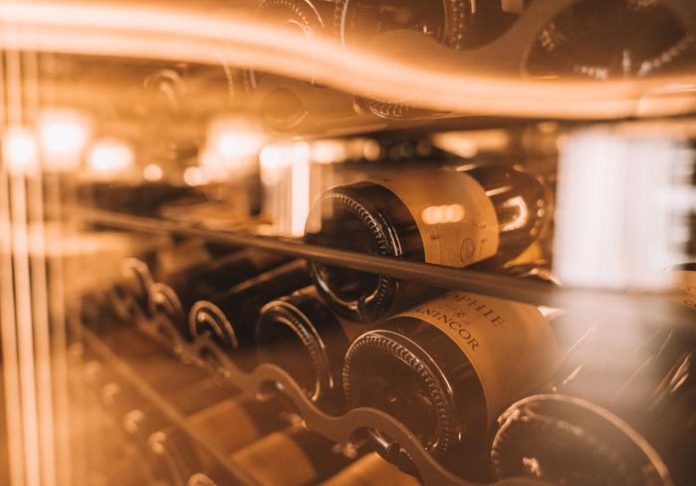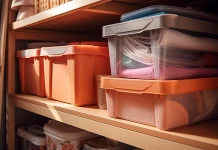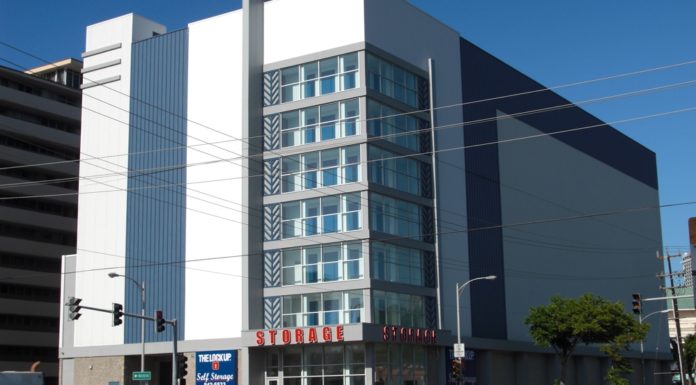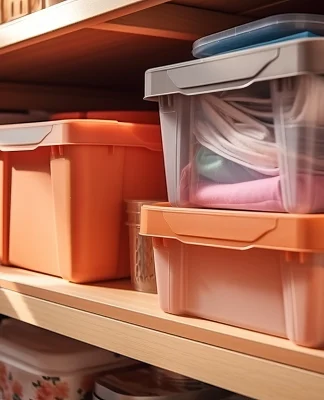Properly storing wine is crucial for anyone—whether you’re a casual drinker or a committed connoisseur. How you store your wine impacts its longevity and flavor and helps you tap into the potential under the cork. Therefore, if you have at least a few bottles of unopened wine sitting on your counter or in your pantry, it’s worth learning some of the valuable secrets of storing wine.
10 Key Tips for Storing Wine
Unless you only buy a bottle of wine when you’re about to drink it, you have a lot to benefit from learning how to properly store wine. With that being said, there’s only a small percentage of fine wines that should be stored long-term for aging purposes. In these cases, bottles of wine can reach six figures, and you’d be better off going with a professional wine cellar for safekeeping. Here, we’re going to focus more on general storage tips for wine enjoyed shortly after its release.
1. Evaluate Each Bottle of Wine
Before storing any bottle of wine, try to assess each bottle’s quality and aging potential. Not all wines need to be professionally stored, especially if you plan to drink them within the next few months. Still, you can evaluate each bottle by taking note of the vintage, grape variety, and producer recommendations to determine the best approach. Fine wines with significant aging potential will benefit the most from proper storage conditions, as they will enhance the wine’s complexity and character over time. On the other hand, wines intended for immediate consumption might not require meticulous storage.
2. Choose an Optimal Temperature
The ideal temperature for wine storage ranges between 45 to 65 degrees Fahrenheit. Finding the right temperature within this range is important to preserve the wine’s flavors, aromas, and overall quality. Try not to go above 65 degrees, as higher temperatures can accelerate aging, leading to premature oxidation and loss of freshness. Lower temperatures can hinder the wine’s development and mute its flavors. Aim for a temperature that suits the specific type of wine you’re storing—55 degrees Fahrenheit is usually the best option for most grapes.
3. Keep the Temperature Stable
Maintaining a stable temperature is another key part of wine storage. Sudden fluctuations can harm the wine’s structure and overall quality. Rapid temperature changes may also cause the wine to expand and contract, potentially damaging the cork and allowing oxygen to seep into the bottle. To ensure stability, store wine in a location shielded from external temperature variations, such as a cool basement or a dedicated wine refrigerator.
4. Move Wine Away from the Kitchen
The kitchen is not ideal for storing wine due to frequent temperature changes and high heat generated by cooking appliances. Additionally, the strong smells that are usually present in a kitchen or pantry can also cause issues with wine storage. Instead, move wine storage away from the kitchen unless you have a dedicated wine cooler sealed off.
5. Store Wine in the Dark
Sunlight and UV rays can cause premature aging and degradation of quality, so it’s best to store wine in a cool, dark area. Exposure to light can lead to the formation of unpleasant aromas and the breakdown of complex compounds, resulting in a diminished drinking experience. If you don’t have a dark area to store your wine, use wine storage solutions that block UV light. When you’re ready to enjoy a bottle, avoid displaying them in direct sunlight or under bright artificial light for extended periods before drinking.
6. Avoid the Refrigerator
While short-term refrigeration is acceptable for white and sparkling wines, long-term storage in a traditional refrigerator is not recommended. Regular refrigerators are too cold and dry for proper wine storage, which can lead to flavor and aroma loss. They may also be filled with other foods with potent or overtaking aromas. Instead, invest in a wine refrigerator or a temperature-controlled storage unit designed specifically for wines.
7. Consider Humidity Control
Maintaining the right humidity level is another crucial element when preserving wine quality. Low humidity can cause the cork to shrink, leading to air exposure and oxidation. On the other hand, high humidity can promote mold growth, which can taint the wine. Aim for a humidity range of 60% to 70% for optimal storage conditions.
8. Store Bottles Horizontally
Storing wine bottles horizontally is widely recommended to keep the cork moist and ensure a proper seal. This position helps prevent air from entering the bottle, minimizing the risk of oxidation. Additionally, horizontal storage allows any sediment in the wine to settle at the bottom, facilitating a clearer pour. What’s more, horizontal storage allows you to maximize the efficiency of your space while you grow your collection.
9. Try to Avoid Excessive Movement
Constant movement or vibrations can disturb aging and negatively impact wine quality. Minimize handling and avoid storing wine in areas prone to frequent vibrations, such as near washing machines, in the refrigerator, or heavily trafficked areas. Choose a stable and quiet location for wine storage, minimizing any disturbances that could agitate the wine or disturb the sediment.
10. Know the Expiration Dates
Contrary to what you might think, many wines, especially those meant for immediate consumption, have expiration dates. Whenever you purchase a new bottle, take note of the recommended drinking window. Not all wines are meant to age; sometimes, excessive aging can lead to the wine’s decline in quality. While proper storage can slow the aging process, it’s important to consume wines within optimal drinking periods to enjoy them at their best. Keep track of the expiration dates to ensure you savor the wine when it’s at its peak.
Choosing the Best Place for Wine Storage
Trying to find the perfect place to store wine in your home can seem impossible, but there are a few options. Whether you want to buy an external cooler, transform your basement, or opt for professional storage, each option has its own advantages and disadvantages.
External Wine Coolers or Refrigerators
One option for wine storage is to invest in an external wine cooler or refrigerator that you can keep in your house. These appliances are designed to maintain the ideal temperature and humidity levels for storing wine. They provide a controlled environment that helps preserve the flavor and quality of the wine. Additionally, external coolers are compact and can be placed in various locations in your home, such as the kitchen or dining area, making it convenient to access your wine collection. However, they have limited capacity and may not be suitable for large wine collections. It’s also important to consider the cooler’s energy consumption and noise levels.
Basement or Wine Cellar
Transforming your basement into a wine cellar is another option for wine storage. Basements tend to have naturally cooler and more stable temperatures, favorable for wine preservation. With proper insulation, humidity control, and the addition of racks or shelving, you can create a suitable wine storage environment. However, basement wine cellars require careful planning and investment in climate control systems to maintain ideal conditions.
Professional Wine Cellar or Storage
For wine enthusiasts who seek optimal conditions and maximum security for their collections, professional wine cellars or storage facilities are an excellent choice. They’re specifically designed for wine storage, offering precise temperature and humidity control to ensure the wine’s longevity. Professional storage facilities often provide individual cellars with various size options, allowing you to choose according to your collection’s needs.
If you’re looking for the perfect place to store your wine, head over to The Lock Up Self Storage. Whether you’re a wine collector, investor, or restaurateur, The Lock Up Wine Cellars will help enhance and safeguard your investment. We’ve spared no expense to ensure that your collection is stored in optimal conditions—at an average temperature of 55 degrees Fahrenheit and 60% to 70% humidity year-round. We offer various sizes of cellars for your storage needs, so you only pay for what you need. To give you the peace of mind you need, our wine cellars are equipped with top-of-the-line security monitoring, including security-controlled gate access, motion-sensitive lighting, 24-hour camera monitoring, and perimeter alarms. We also offer traditional self-storage units with flexible leasing options. Many of our locations offer electronic coded access specific to each tenant. To learn more about the pricing, or to find a storage unit near you, call us at 1-866-327-LOCK today!



















